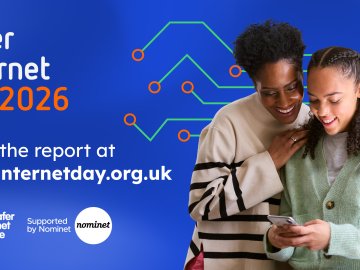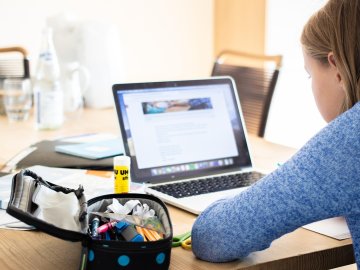As the summer holidays come to an end and students return to school, their daily routines change—whether it’s getting used to early mornings again, tackling homework, or getting back in touch with classmates. With the first few weeks of term upon us, it’s a great time to remind both students and teachers about the importance of online safety and digital wellbeing to prepare them for the rest of the school year with the help of SWGfL’s resources.
Digital Wellbeing and Healthy Online Habits
For many young people, adjusting to school routines after a summer of relaxation and entertainment can be challenging. The start of the school year is an ideal time to have conversations about digital wellbeing and encourage students to balance their online activities with offline life. Discussing healthy online habits, critical thinking about online information, and positive influences can all support students’ digital wellbeing.
Educators can find further resources through the Digital Wellbeing Hub, which offers guidance on supporting digital wellbeing in educational settings.
Social Media Safety
As students use digital tools for everything from virtual quizzes and assignments to social media and gaming, these different platforms can offer many educational benefits. However, they also expose young people to risks such as cyberbullying, phishing scams, and harmful content.
It is essential for parents and educators to guide students in navigating these spaces safely, and our Social Media Checklists can help educators and parents manage privacy settings across various platforms, keeping their social media profiles secure.
Reporting Harmful Content
Despite best efforts to protect students online, some may encounter harmful content. It is crucial that young people and adults know how to respond to these situations. To guide students and teachers on reporting instances of online harm, Report Harmful Content can help individuals over the age of 13 to report harmful content on major platforms such as TikTok, Facebook, and X (formerly Twitter).
Schools can also support this effort by adding the Report Harmful Content Button to their websites, giving students easy access to reporting routes and community guidelines.
Anonymous Reporting and Safeguarding
Encouraging students to speak up about their concerns, both online and offline, can be difficult, especially as they adjust to new classes. Anonymous reporting routes like Whisper allow students to share their concerns in a safe way, enabling safeguarding leads or trusted adults to address issues discreetly and quickly. You can find out more about how to utilise Whisper in your school on our website.
Enhancing Digital Literacy with ProjectEVOLVE
Improving students' digital literacy is essential as we rely on the internet more than ever. ProjectEVOLVE provides free resources that help schools develop their online safety curriculum and encourage critical thinking skills in students. By using these tools, educators can guide students in responsible and safe technology use.
Alongside ProjectEVOLVE, ProjectEVOLVE EDU can support teachers, school staff, and professionals with their understanding of online safety and technology, helping to better inform the young people they work with and improve digital literacy education.
Addressing Emerging Trends
Staying informed about emerging online trends is crucial for teachers protecting both themselves and their students. With AI and synthetic media changing how we use and interpret technology, it’s important to know the latest news and support available to understand these changes.
Our Artificial Intelligence and Online Safety Hub, alongside our newly launched Synthetic Media Hub, break down all the information you need to know about these emerging technologies and provides guidance and support for schools, adults and parents.
Online Safety Concerns
Any professional working with young people can contact the Professionals Online Safety Helpline for support, whether it be about online reputational concerns or reporting harmful content on social media.
The Professionals Online Safety Helpline can be contacted by emailing helpline@saferinternet.org.uk or calling 0344 381 4772. The helpline is open Monday to Friday, 10am to 4pm, excluding bank holidays.
Preparing for the New School Year
The tools and guidance provided here offer a snapshot of the support available from SWGfL to support students’ online safety. Teachers can also access additional resources through the Back to School Hub for more advice, including improving online safety policy and practice, and reviewing online safety training for children and staff.






